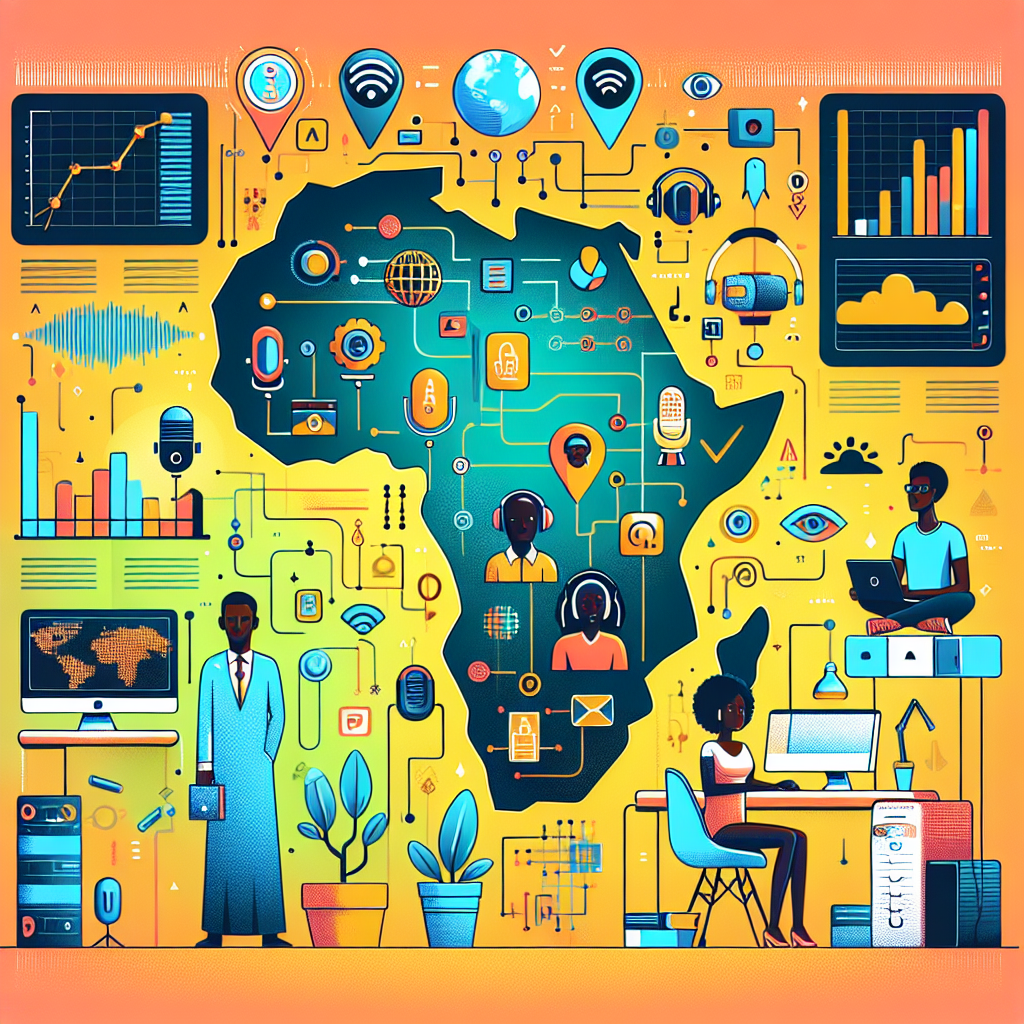
The emergence of artificial intelligence (AI) technologies has ushered in a new era of communication and interaction. However, these technologies predominantly reflect the languages and cultures of the global north, leaving a significant gap when it comes to representing African languages. Recognizing this disparity, a dedicated team of African computer scientists, linguists, and language specialists has embarked on a groundbreaking initiative known as the African Next Voices project, aimed at developing a substantial dataset of various African languages to enhance AI capabilities.
Funded primarily by the Gates Foundation, with additional support from Meta, the African Next Voices project has become a beacon of hope for inclusivity in the AI landscape. The project spans several countries, including Kenya, Nigeria, and South Africa, where the initiative has kicked off with tremendous enthusiasm. The recently released dataset is believed to be the largest collection of African language data specifically designed for AI training, marking a significant milestone in AI development.
Language is fundamental to how we interact, express our needs, and hold meaning within our communities. It is the medium through which we articulate requests to AI systems and validate their responses. Unfortunately, many modern AI models, often referred to as large language models (LLMs), primarily rely on datasets derived from a limited selection of languages such as English, Chinese, and some European languages. This lack of representation not only hampers AI’s ability to engage with a diverse user base but also diminishes its understanding of cultural nuances intrinsic to African languages.
As the usage of AI applications grows across various fields—from education to healthcare and agriculture—the need for AI solutions that truly understand and respect local languages becomes increasingly urgent. The reality is that without robust African language datasets, training AI to function effectively in these contexts becomes nearly impossible. This limitation has led to serious issues such as inaccurate translations and unreliable voice recognition, which further alienates users from technologies that could benefit them.
The historical marginalization of African languages adds another layer of complexity to this challenge. Decades of policy choices favoring colonial languages in education and governance have resulted in a striking shortage of high-quality digital content in African languages. This ongoing neglect has made it difficult to collate the necessary linguistic data to create viable AI models that serve African populations.
There are several hurdles involved in building an effective dataset, such as the availability of dictionaries, terminologies, and basic language tools that are frequently taken for granted in other linguistic contexts. African language keyboards, appropriate fonts, and advanced text processing tools capable of handling orthographic variations and dialect diversity are just some of the challenges that need addressing. Without these fundamental resources, the development of reliable AI systems remains out of reach for many African languages.
The consequences of neglecting African languages in AI development are far-reaching. Poorly developed models can lead to harmful outcomes, such as mistranslations that could distort critical information in healthcare and education. Furthermore, without systems capable of communicating in local dialects, many Africans find themselves excluded from accessing vital news, educational resources, and essential services.
In conclusion, the African Next Voices project exemplifies a significant step towards leveling the playing field in the AI space. By prioritizing African languages and cultural contexts, this initiative not only aims to enhance the performance of AI tools but also fosters a sense of ownership and representation among African users. This endeavor recognizes that achieving true AI inclusivity is about much more than mere functionality; it’s about respecting cultural identities and ensuring that technology serves all of humanity equitably.

Leave a Reply